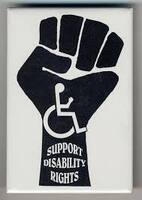Many of you know that I used to be a minister. Yes, I was a preacher for 16 years (1992-2008). I was formerly a staunch conservative and spoke out against many social issues of the day, including gay marriage. I even published a book with Olive Press in 2005 calling for national repentance. Needless to say, I have had a change of heart in many respects. I know that many pastors today have preached sermons of doom and gloom. They have somehow confused their job as a spiritual leader with one of being a political activist, which Jesus never was, mind you! So, I want to offer just a few thoughts to counter that narrative. I offer these not in an effort to create a flame war debate in the comments. I only hope that we can strive for peace and that religious people can let civil government do its job without trying to turn America into a theocracy. It is merely food for thought and an attempt to bring some balance/perspective for all the judgment, condemnation, and hell, fire, and brimstone that is out there. Whether or not you agree with the SCOTUS decision, it does not change these biblical teachings:
Regardless of the circumstances or topic of debate, the biblical rule is to be nice: “Be ye kind to one another” (Ephesians 4:32, KJV).
Regardless of the circumstances or the topic of debate, the biblical rule is not to take matters into your own hands: “Bless those who persecute you; bless and do not curse… Do not repay anyone evil for evil. Be careful to do what is right in the eyes of everyone. If it is possible, as far as it depends on you, live at peace with everyone. Do not take revenge…” (Romans 12:14, 17-19; NIV).
Regardless of the circumstances or the topic of debate, the biblical rule is not to wish or to exercise harm on any of your neighbors: “Love does no wrong to others, so love fulfills the requirements of God's law” (Romans 13:10, NLT).
Regardless of the circumstances or the topic of debate, the biblical rule is to embrace the outcast and marginalized groups in society: Remember the stories of the Samaritan woman, the adulterous woman, the sinful woman, the prostitutes, the “demon possessed,” the tax collectors, the lepers, etc. Because of your actions and rhetoric toward marginalized groups, would people call you the sinner’s friend like they did Jesus (Matthew 11:18-19)?
Regardless of the circumstances or the topic of debate, the biblical rule is to live and let live. Yes, it really is. The entire chapter of Romans 14 is about people with different interpretations about proper behavior and their need to honor their conscience without trying to bind their conscience on others or to judge them. It ends with some excellent advice, “So let us concentrate on the things which make for harmony, and on the growth of one another’s character…Your personal convictions are a matter of faith between yourself and God (Romans 14:19, 22, Phillips).
Regardless of the circumstances or the topic of debate, the biblical rule is respect the law of the land. “Let everyone be subject to the governing authorities, for there is no authority except that which God has established. The authorities that exist have been established by God. Consequently, whoever rebels against the authority is rebelling against what God has instituted, and those who do so will bring judgment on themselves” (Romans 13:1-2, NIV). Even Jesus, himself, said, "Render to Caesar the things that are Caesar’s, and to God the things that are God’s" (Mark 12:17, NiV). Many Caesars were homosexuals and built "pagan" temples throughout their empires with tax dollars, yet Jesus recognized the difference in what is spiritual and what is secular and he did not concern himself with trying to force his will on the secular. This does not mean you always agree or do not work peacefully and through appropriate channels to effect change, but it means that you live respectfully as a citizen in the meantime.
Regardless of the circumstances or the topic of debate, the biblical rule is Jesus never wanted to establish a kingdom on earth. He did not want to have land and subjects and earthly government because people would fight like they are doing now when they want to try to govern a nation as if it is a church instead of a secular country ruled by civil law. I think Jesus' response to all the rhetoric of “Christian nation” would be, “Leave me out of it!” Jesus said plainly, “My kingdom is not of this world. If it were my servants would fight…” (John 18:36, NIV). And here is a thought, if Jesus were to suddenly change his mind about having an earthly kingdom, do you think his approach would be to send Europeans to systematically oppress and slaughter the Native Americans, promote greed for land and gold to expand westward, and use African slave labor to clear and cultivate the land to establish his kingdom on earth? Come on, America, as a nation, has been no shining city of a hill, and the Puritans were misguided to think that they could merge the spiritual and secular to make a physical kingdom so.
Regardless of the circumstances or the topic of debate, the biblical rule is, "We must obey God rather than human beings" (Acts 5:29, NIV). I know this passage is sure to become a rallying call for Christians in America to protest the SCOTUS decision. However, to do so, in my opinion, is to misapply this passage by ripping it out of context. Peter is not bucking civil government when he states this. He is not akin to a county clerk refusing to obey civil law and issue a marriage license because of religious belief. No, he is standing before a Jewish religious court regarding his actions at religious services in the temple. Peter and the rest of the Apostles had been preaching about Jesus in the temple courtyards, and the Jewish religious council, on religious grounds, is commanding them to stop. To this, Peter states, "We must obey God rather than human beings." To apply this in a contemporary setting would not be to make it analogous to a Christian defying civil law. This passage would apply only within religious contexts, such as if you are a member of a church and the leaders of that church command you to do something that violates a clear command of God. If that happens, then by all means quote Acts 5:29, but the county court house is not a church, and the SCOTUS is not making rulings to regulate your behavior during religious services. So, obey God according to your conscience, like Peter, as it relates to fulfilling your spiritual duties, but you are obeying God when you respect civil law. God has not called you to be a vigilante who openly defies government. Even under oppressive Caesars, like Nero, who persecuted Christians and outlawed churches, the Apostles never called on Christians to protest and try to change their government rules. They still practiced their faith privately and in public did their best to live quiet and peaceful lives and to overcome evil with good. May Christians in America do likewise today.
You do not have to like it, but it is the law of the land. It is not going to suddenly make more people decide that they are gay and want a gay wedding. It is not going to result in a drastic decline in the U.S. population, leaving us vulnerable down the road to foreign oppression (Yes, I actually heard someone make this argument in a public debate). It will not force ordained ministers to perform weddings against their conscience. Yes, if you want to serve as a county clerk or a justice of the peace, then you will need to fulfill your duties as a civil servant. You are not performing a religious duty; you are doing your job as a civil worker. It does not mean that you have to personally agree with your job, but you are obligated to do it. If you can't, then you should resign to honor your conscience without making an issue of it. But consider this, you are not being asked to be gay yourself. You are not being asked to perform the wedding. You are not being asked to murder, to commit adultery, or to break any of the Ten Commandments. How are you sinning, if you merely hand a gay couple an application for a marriage license that is now their constitutional right to have? Do you even need to ask if they are gay? Just because two men come to ask for a marriage application, does this mean they are gay? Could one of the men not be a good friend or brother? To me, this is where the biblical rule to ask no questions for the sake of conscience would come in handy (1 Cor. 10:25). It is none of your business. You do not need to know if the application is being used for a gay wedding or a heterosexual one. To paraphrase Paul, "Hand out the application, asking no questions for conscience' sake." If you think you would be sinning or condoning sin by handing out the application, then are you doing so if you give a marriage license to a couple who are marrying without their parents' approval? To an unwed mother? To a couple who have been "living in sin" by co-habitating before marriage? To a divorcee who is remarrying for a reason other than adultery? If not, why not?
It is not civil government's role to evaluate the morality of all of these scenarios; it is to ensure that equal protection under the law is afforded to all. In your church you can determine whether or not you approve of such arrangements, whether or not you teach that it is okay, whether or not you admit this one or that one into your church membership, based on biblical teachings. You have that right, and the SCOTUS decision does not threaten that. The First Amendment protects you from government interference into how you exercise your religion, but it equally protects others from having their civil rights infringed upon by your religious beliefs. There must be a wall of separation for this to be, and that wall is the wall that separates spiritual affairs related to what you do or do not do in church and in the privacy of your own home or in actions that are specifically religious in nature, and secular affairs governed by civil law. When you claim the right to exercise your religious beliefs in and through the secular affairs of government, then you are joining what God wills to keep separated and creating a situation where all will eventually live by the sword and die by it, because even Christians cannot agree among themselves about how to interpret many core religious teachings.


 RSS Feed
RSS Feed
